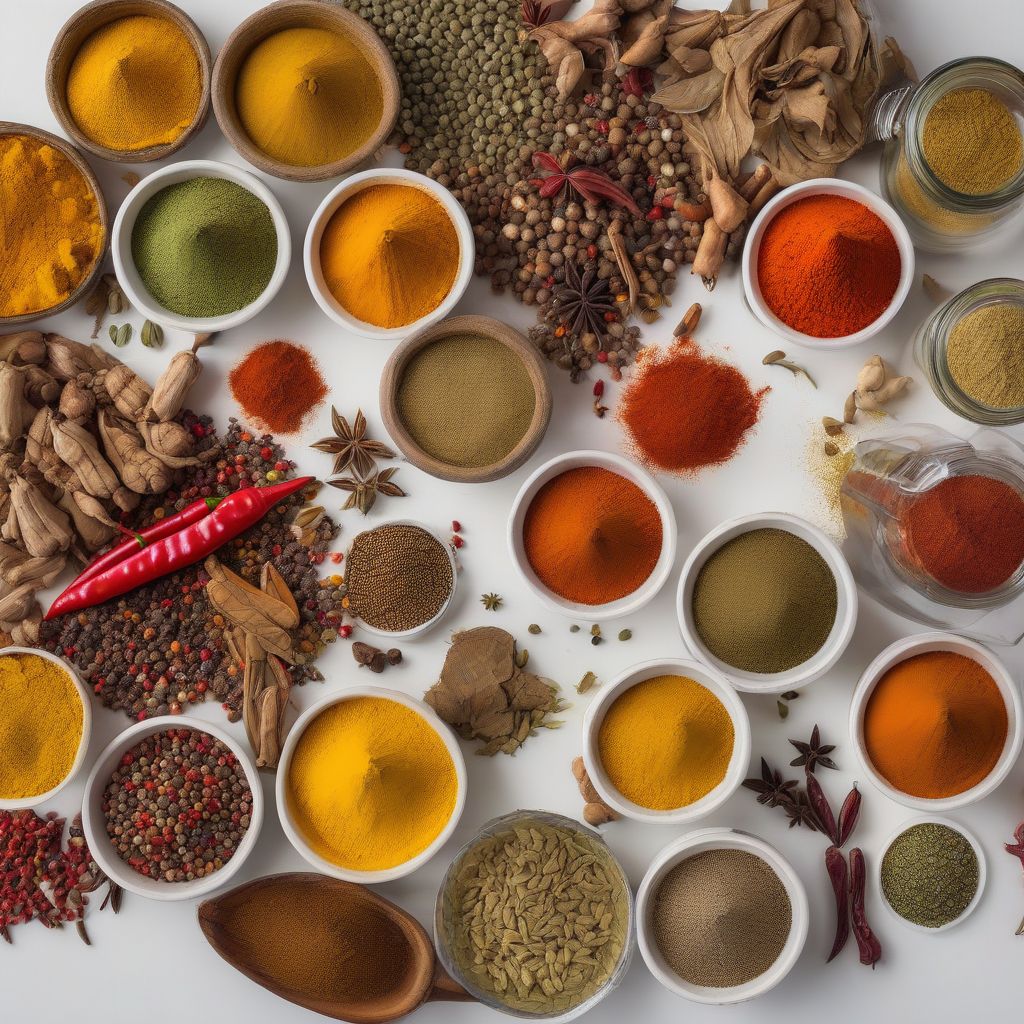Imagine biting into a dish that bursts with flavor, a symphony of taste that transports you straight to the heart of Africa. African cuisine isn’t just about the ingredients; it’s about the artful use of spices that weave magic into every bite. Let’s embark on a culinary journey, exploring the diverse flavors of African cuisine through its most celebrated spices.
The Spice Trade: A Legacy of Flavor
The history of African spices is intertwined with ancient trade routes that once crisscrossed the continent. Spices like black pepper, cinnamon, and cloves, originating from the East, found their way to African shores, blending with indigenous herbs and chilies to create unique flavor profiles. This vibrant exchange of culinary traditions laid the foundation for the diverse and flavorful cuisines we know and love today.
A Sensory Journey: Unveiling Africa’s Spice Palette
From the fiery heat of berbere in Ethiopia to the fragrant warmth of dukkah in North Africa, each region boasts a unique blend of spices that defines its culinary identity. Let’s delve into some of the most popular African spices and their culinary uses:
1. Berbere: The Heart of Ethiopian Cuisine
No exploration of African spices is complete without mentioning berbere, a fiery blend that forms the backbone of Ethiopian cuisine. This complex spice mix typically includes chilies, garlic, ginger, fenugreek, and a host of other spices, each lending its unique character. Berbere adds depth and complexity to stews like Doro Wat, a rich and flavorful chicken dish, and lentils, transforming them into culinary masterpieces.
2. Dukkah: A Taste of Egypt
Originating from Egypt, dukkah is a versatile spice blend made from a medley of nuts, seeds, and spices. The most common ingredients include hazelnuts, sesame seeds, coriander, and cumin. Dukkah’s nutty and aromatic flavor profile shines when sprinkled over salads, dips, or even used as a crust for grilled meats, adding a delightful crunch and a burst of flavor.
3. Piri Piri: Mozambique’s Fiery Delight
Piri Piri, also known as African Bird’s Eye Chili, packs a serious punch. Used extensively in Mozambican cuisine, this fiery chili is the star ingredient in the renowned Piri Piri sauce. The sauce, often made with a blend of chilies, garlic, lemon juice, and herbs, is a condiment that adds a fiery kick to grilled chicken, seafood, and vegetables.
 African Spices
African Spices
4. Ras el Hanout: The Spice of a Thousand Tales
Translating to “head of the shop” in Arabic, Ras el Hanout is a treasured spice blend from Morocco. This exotic mix boasts a complex flavor profile, with each spice merchant having their secret recipe, often containing over 30 different spices. Common ingredients include cardamom, cinnamon, cloves, nutmeg, mace, and turmeric. Ras el Hanout adds warmth and depth to tagines, couscous dishes, and even desserts, lending a touch of Moroccan magic.
5. Suya Pepper: Nigeria’s Street Food Staple
No trip to Nigeria is complete without tasting suya, grilled skewers of meat seasoned with a fiery spice blend known as suya pepper. This potent mix typically includes ground peanuts, ginger, paprika, and cayenne pepper. Suya pepper delivers a smoky, nutty flavor with a lingering heat that makes it perfect for grilling and adding depth to marinades.
Health Benefits: Spices Beyond Flavor
Beyond their flavor-enhancing properties, many African spices offer various health benefits. Turmeric, a key ingredient in many African cuisines, is known for its anti-inflammatory properties. Ginger aids digestion and can help alleviate nausea. Garlic boosts the immune system, while chilies are a good source of Vitamin C. Incorporating these spices into your diet not only tantalizes your taste buds but also contributes to your overall well-being.
Tips for Cooking with African Spices:
- Start Small: When using unfamiliar spices, start with small quantities and gradually increase to your liking.
- Toasting for Enhanced Flavor: Toasting whole spices before grinding releases their aromatic oils, intensifying their flavor.
- Balance is Key: African cuisine thrives on a balance of flavors. Don’t be afraid to experiment with different spice combinations to create your signature dishes.
Conclusion
Exploring African cuisine through its spices is a sensory adventure that unveils a world of aromas, flavors, and culinary traditions. By embracing the bold and vibrant flavors of these spices, you can create dishes that transport you to the heart of Africa, tantalizing your taste buds and enriching your culinary repertoire. So, why not embark on a spice-filled journey today? Your taste buds will thank you!
Ready to spice up your life? Share your favorite African spice combinations and dishes in the comments below!
[amazon bestseller=”african spice cookbook”]
